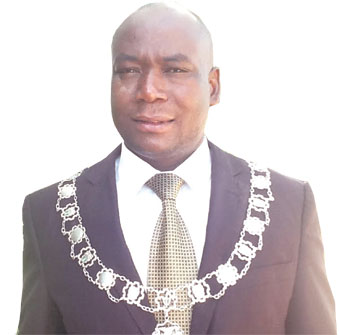
WHILE most local authorities are struggling to collect rates and debts, Victoria Falls Town Council has come up with a novel idea of ensuring residents pay and it does not include attaching ratepayers’ property.
Richard Muponde Senior Reporter
The town council is owed $7 million in unpaid rates and like other municipalities, it has resorted to court orders to get ratepayers to cough up.
But what is of interest is the way it effected operations of court orders which has won the hearts of many.
Under its department of social amenities, the local authority vets and selects some defaulting ratepayers who then clear storm drains, slash grass and clean illegal dumping sites and for their labour, their bills are cleared.
Victoria Falls town clerk Christopher Dube said the local authority had previously disconnected water for residents in order to force them to pay bills, but this was not working.
“However, we have since abandoned that punitive measure as that was making residents suffer,” he said.
“You should understand that some of these residents genuinely fail to pay their bills because of the biting economic environment.
- Chamisa under fire over US$120K donation
- Mavhunga puts DeMbare into Chibuku quarterfinals
- Pension funds bet on Cabora Bassa oilfields
- Councils defy govt fire tender directive
Keep Reading
“So we said no, let’s stop disconnections and instead engage residents to come up with payment plans.”
Dube said they copied Bulawayo City Council’s method of going to court to force residents to pay their balance.
“However, we don’t attach residents’ property,” he explained.
“We engage and vet the residents and see those who are genuinely failing to pay.
“These are then introduced to the programmes offered by the social amenities department, where they voluntarily take part in various council programmes as a way of settling their bills.”
Dube said the programmes included cutting grass on roadsides in the town, removing garbage on undesignated sites and clearing storm drain.
He conceded that most local authorities in the country were feeling the pinch of an underperforming economy.
“We are owed a lot of money by residents,” Dube said.
“The problem has affected our service delivery.
“Like any other local authority, we are feeling the pain.
“There are some extreme cases where we have to attach a house because of the magnitude of the bills.
“In these instances we talk to the owner that instead of us auctioning the house, it would be better for him to sell it and pay his bills. The remainder he will take with him and go and start a new-life.”
The council official said they felt that if they auctioned the houses, it would be tantamount to destroying residents’ lives, as they don’t benefit anything if their properties were sold by public auctions.
Other local authorities have been urged to emulate Victoria Falls Town Council’s way of dealing with residents.
Bulawayo Progress ResidentS’ Association secretary Ambrose Sibindi said the facility in the resort town would benefit cities like Bulawayo.
“The programme has a human face because it’s not that residents don’t want to pay,” he said.
“The majority have nothing and can’t make ends meet as they are out of employment and council debts are also accumulating every day. “They also need their property because they will never get it again.”
Sibindi said if the programme was voluntary, then it would be worth emulating.
“Other local authorities, Bulawayo included, could emulate that,” he said.
“It’s a win–win situation for both residents and the council.”
Sibindi’s sentiments were echoed by his counterpart, Bulawayo Residents Association, chairperson Winos Dube who said such a move was welcome.
“That will go a long way in helping both sides, the council and residents,” he said.
“That will relieve pressure on residents.
“It will really be a good move instead of attaching residents’ property,” he said.










